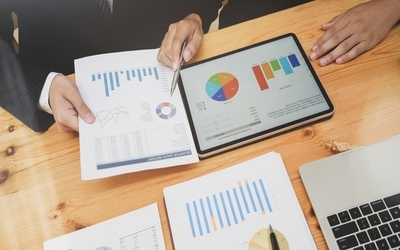
Submitted by firuze.alpaydin on May 4, 2020
The powerful link between environmental transparency and economic resilience
According to the article of Dexter Galvin and Emily Kreps from CDP, in today’s global economy, people and organizations are linked in myriad ways. The building blocks of a thriving business are the relationships between purchaser and supplier, investor and investee, brand and consumer, or employer and employee.
Environmental risks, impacts, responsibilities, and opportunities run through these connections in the value chain. This means that your stakeholders care about your environmental performance.
The transparent sharing of comparable, reliable data is essential for managing global challenges effectively – just as this is the case for the current global health crisis, it also applies to tackling environmental crises.
Transparency of corporate risk allows other actors in the economy like investors and purchasers to develop clear and effective plans of action, and data-driven decisions.
CPR Asset Management, owned by Amundi, uses CDP climate scores to select stocks for the CPR Invest - Climate Action fund.
In 2020, 515 investors with US$106 trillion in assets are requesting thousands of companies to disclose to them through CDP. This is a staggering increase from the 35 investors who signed CDP’s very first disclosure request back in 2002; at that time, the concept of environmental disclosure was all but unheard of.
“At CPR Asset Management, we’re convinced that investing in climate leaders today is set to bring long-term value to our clients. We need to know how exposed a company is to environmental risks and their long-term strategy for the low carbon transition, in order to identify future market leaders. Thanks to their unique and longstanding leadership in the climate field, the highly respected CDP ratings are at the heart of our investment process.” - Gilles Cutaya, Deputy CEO at CPR Asset Management.
Please click here to reach the full version of article.
Environmental Data in the Time of Corona: Preparing for Shocks to the System
The COVID-19 pandemic has, for many of us, brought home the grim reality of a world that is susceptible to rapid and drastic change — one in which businesses and institutions need to be experts at adapting to and surviving shocks and disruptions.
Whilst primarily and tragically a public health crisis, the economic and social fallout deepens with every passing week. Yet both COVID-19 and climate change are what economists call exogenous shocks — factors that re-shape a system — so, it is heartening to see an underlying propensity by major organisations to do the right thing when it comes to dealing with the virus: Follow the science. Although the crises are profoundly different, the parallels are obvious; and the key to surviving both is to use data-driven strategies to improve resilience to future shocks.
The transparent sharing of reliable data is essential to managing global challenges. As the COVID-19 pandemic demonstrates, successful risk management relies on accurate measuring and reporting.
It’s easy to assume that in the current crisis-driven situation, corporate sustainability might take a backseat — but in fact, evidence shows the opposite: Larry Fink and BlackRock doubled down on their commitment to pressuring CEOs over climate change last month; and whilst data is scarce, there are signs that 2020 will remain a growth year for renewables, despite companies being especially cost-conscious.
Please click here to reach the full version of article.
Don’t fear shifting climate goalposts – instead, let them spark our economic revival
Twenty years ago, it was rare to find any company measuring and reporting GHG emissions, let alone setting emissions reduction targets. Only six years ago, it was hard to persuade a company to set science-based targets. Today, over 200 companies have committed to setting science-based targets that align with 1.5°C. Now they are turning their attention to the long-term goal – net zero emissions well before 2050. I doubt any of the ‘first mover’ companies in each of these instances has come to regret the big first step they took.
Resist the urge to press ‘pause’ on climate leadership – because climate change isn’t stopping for anyone or anything. Those who place climate and sustainability at the heart of economic recovery will find themselves ahead of the pack.
We have already seen renewed calls for a more sustainable economy to emerge after the crisis. And science tells us we simply cannot wait. What’s more, your competitors are already setting ambitious targets, your investors are calling for action and growing sectors of your customer base want it.
Please click here to reach the full version of article.





